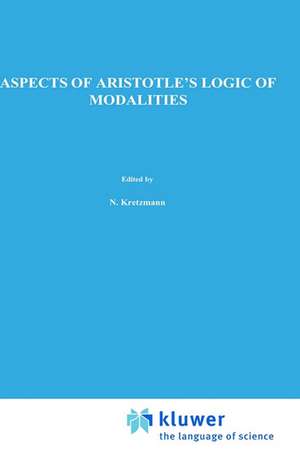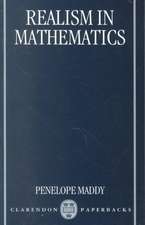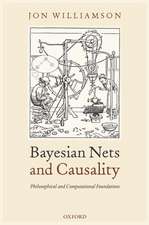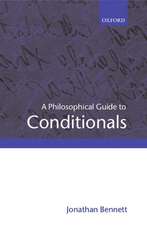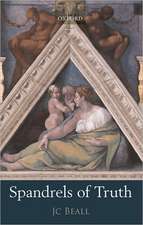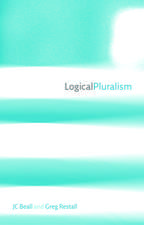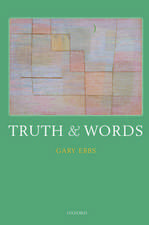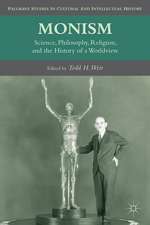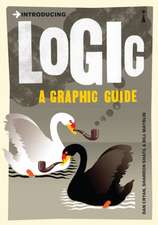Aspects of Aristotle’s Logic of Modalities: Synthese Historical Library, cartea 35
Autor J. van Rijenen Limba Engleză Hardback – 31 dec 1988
| Toate formatele și edițiile | Preț | Express |
|---|---|---|
| Paperback (1) | 942.63 lei 6-8 săpt. | |
| SPRINGER NETHERLANDS – 21 dec 2011 | 942.63 lei 6-8 săpt. | |
| Hardback (1) | 949.73 lei 6-8 săpt. | |
| SPRINGER NETHERLANDS – 31 dec 1988 | 949.73 lei 6-8 săpt. |
Din seria Synthese Historical Library
-
 Preț: 377.18 lei
Preț: 377.18 lei -
 Preț: 402.56 lei
Preț: 402.56 lei -
 Preț: 386.22 lei
Preț: 386.22 lei - 18%
 Preț: 1224.85 lei
Preț: 1224.85 lei -
 Preț: 394.29 lei
Preț: 394.29 lei -
 Preț: 382.36 lei
Preț: 382.36 lei - 18%
 Preț: 2098.33 lei
Preț: 2098.33 lei - 15%
 Preț: 640.37 lei
Preț: 640.37 lei - 18%
 Preț: 1389.78 lei
Preț: 1389.78 lei - 18%
 Preț: 948.29 lei
Preț: 948.29 lei - 15%
 Preț: 643.48 lei
Preț: 643.48 lei - 18%
 Preț: 2490.73 lei
Preț: 2490.73 lei - 18%
 Preț: 952.40 lei
Preț: 952.40 lei - 15%
 Preț: 639.90 lei
Preț: 639.90 lei -
 Preț: 387.75 lei
Preț: 387.75 lei - 18%
 Preț: 949.73 lei
Preț: 949.73 lei - 18%
 Preț: 1225.94 lei
Preț: 1225.94 lei - 18%
 Preț: 951.47 lei
Preț: 951.47 lei - 15%
 Preț: 643.34 lei
Preț: 643.34 lei - 18%
 Preț: 955.70 lei
Preț: 955.70 lei - 18%
 Preț: 1544.63 lei
Preț: 1544.63 lei - 18%
 Preț: 951.29 lei
Preț: 951.29 lei -
 Preț: 391.99 lei
Preț: 391.99 lei - 18%
 Preț: 1385.85 lei
Preț: 1385.85 lei - 24%
 Preț: 1050.97 lei
Preț: 1050.97 lei - 18%
 Preț: 1827.63 lei
Preț: 1827.63 lei - 18%
 Preț: 1552.83 lei
Preț: 1552.83 lei - 18%
 Preț: 1220.88 lei
Preț: 1220.88 lei
Preț: 949.73 lei
Preț vechi: 1158.20 lei
-18% Nou
Puncte Express: 1425
Preț estimativ în valută:
181.75€ • 188.60$ • 151.91£
181.75€ • 188.60$ • 151.91£
Carte tipărită la comandă
Livrare economică 15-29 martie
Preluare comenzi: 021 569.72.76
Specificații
ISBN-13: 9780792300489
ISBN-10: 0792300483
Pagini: 238
Ilustrații: XII, 238 p.
Dimensiuni: 156 x 234 x 20 mm
Greutate: 0.57 kg
Ediția:1989
Editura: SPRINGER NETHERLANDS
Colecția Springer
Seria Synthese Historical Library
Locul publicării:Dordrecht, Netherlands
ISBN-10: 0792300483
Pagini: 238
Ilustrații: XII, 238 p.
Dimensiuni: 156 x 234 x 20 mm
Greutate: 0.57 kg
Ediția:1989
Editura: SPRINGER NETHERLANDS
Colecția Springer
Seria Synthese Historical Library
Locul publicării:Dordrecht, Netherlands
Public țintă
ResearchCuprins
One/ Subject and Programme.- 1. Introduction.- 2. Quandaries in recent Aristotle research.- 3. The programme of this study.- Notes to Chapter One.- Two/ The General Doctrine I Some Theorems and Rules.- 1. Multifariousness and common core.- 2. A provisional assumption.- 3. Common properties.- 4. Comparisons.- Notes to Chapter Two.- Three/ The General Doctrine II Absolute and Qualified Modalities.- 1. Introduction.- 2. Qualified vs. absolute modalities.- 3. Qualified necessity, syllogisms and the proof per impossibile.- 4. Absolute impossibility and the commensurability of the diagonal.- 5. Real and assumed background knowledge.- 6. Relations between temporal and modal concepts.- Notes to Chapter Three.- Four/ Modality and Time (I) The Principle of Plenitude.- 1. Introduction.- 2. The Principle of Plenitude and its role in Aristotle’s modal thinking.- 3. The evidence.- Notes to Chapter Four.- Five/ Modality and Time (II) De Caelo I.12 and The Necessity of What is Eternal.- 1. The problem.- 2. Williams and the supposed logical errors.- 3. Hintikka and the confusion in Aristotle’s “Master Argument”.- 4. Judson and the “grossness of Aristotle’s fallacy”.- 5. The metaphysics in De Caelo I.12 as exposed by Waterlow.- 6. De Caelo I.12 and the necessity of what is eternal.- 7. Some extrapolations and the role of hylê phthartê.- Notes to Chapter Five.- Six/ Modality and Time (III) De Interpretations 9.- 1. Introduction.- 2. The traditional views.- 3. De Interpretations 9 on the statistical reading.- 4. Deliberation and chance events in De Interpretatione 9.- 5. The interpretation.- Notes to Chapter Six.- Seven/ Posterior Analytics I.4–6 The De Omni-Per Se Distinction.- 1. Introduction.- 2. Zabarella on Aristotelian necessity.- 3. Inseparable accidents.- 4. Afirst look at Posterior Analytics I.4–6.- 5. Some commentaries on Posterior Analytics I.4 and 6.- 6. Real or conceptual modalities?.- 7. Aristotle, matter, and definition.- Notes to Chapter Seven.- Eight/ Posterior Analytics I.4–6 Names and Naming.- 1. Abstraction in Metaphysics XIII.3.- 2. Abstraction and naming.- 3. The issue of names and naming.- 4. A new look at Posterior Analytics I.4–6, part one.- 5. Some major differences.- 6. A new look at Posterior Analytics 1.4-6, part two.- 7. Belonging kath’ hauto and homogeneity.- 8. Homogeneity, the necessity of what is always and the concept of possibility.- Notes to Chapter Eight.- Nine/ Apodeictic Syllogistic.- 1. Introduction.- 2. External criticism.- 3. The nature of Aristotle’s syllogistic theory.- 4. Apodeictic syllogistic.- 5. Incoherence.- 6. McCall’s reconstruction.- 7. The four apodeictic categorical sentences and apodeictic ecthesis.- 8. The apodeictic conversion rules.- 9. The apodeictic Barbaras and domains of discourse.- 10. The status of ALuu.- 11. The soundness of the inference base.- 12. Conversion rules and shifts of type of predication.- 13. Conclusions.- Notes to Chapter Nine.- Index of Names.- Index of Subjects.
